Illustration by Hawnuh Lee.
Activism comes in all forms, but Jasmine Cho might have narrowed in on the sweetest. Her whole life, she wondered why she didn’t see people who looked like her represented in the media or even in history books, so she decided to use her skills as a pastry chef and artist to change that. Jasmine’s portrait cookies celebrate Asian American and Pacific Islander leaders and heroes whose stories have been erased from mainstream narratives. And most recently, distinguished African American leaders who’ve shaped the Black Lives Matter movement. Bearing the faces of comedian Ali Wong, author Helen Zia, tennis champion Naiomi Osaka, James Baldwin, and many others, these works of art are an exploration of cultural representation in the form of a sugary treat. She also wrote a children’s book called Role Models Who Look Like Me. It’s full of of rhymes and watercolor illustrations that tell the stories of AAPI change makers. Buy it for the youngins in your life!
In addition to her work as a cookie activist (stellar job title, btw), Jasmine is leading new research to illustrate how baking can support mental health. She is pioneering the field of bake therapy to make the healing power of baking accessible to anyone who could benefit from it.
This conversation left me feeling as warm and full as a plate of fresh cookies—I hope it does the same for you.
Tell me a little bit about your background and how you got started baking.
Treats and sweets were never associated with guilt in our household. Dessert was treated as an expression of love so there was always a positive connotation around it, and I am really grateful for that.
I didn’t start baking until I was a sophomore in high school. I remember distinctly, my best friend came over for a sleepover one night and taught me some baking techniques—she basically gave me a private lesson—and I was completely hooked.
After that first experience of baking something from scratch, it quickly became a hobby of mine. I remember doing a ton of bake sales in high school and throughout college—always offering baking as a way that I could contribute to different causes and communities that I cared about.
I had these dreams of opening my own bakery one day, but I never took any action until around 2010 after completing an AmeriCorps program in Pittsburgh called Public Allies. It was a 10-month program based in personal and professional development, and one of their values was focusing on existing assets. Like, rather than going into a community and building something new, try to focus and identify what assets might already be there and magnify and amplify those. So I applied that same value and attitude. I asked myself, ‘What already exists inside of me that I can amplify?’ One of my answers was my passion for pastry.
“I wanted to inspire others to identify what they are already talented at and utilize it to serve something larger.”
That program gave me the courage to take action. I decided the best place to start would be working in a bakery, but since I didn’t have any previous job experience or culinary education, I made these YouTube videos animating cookies and used that as a portfolio. I sent the links out to five local bakeries, and all of them came back with a job offer.
The one that hired me was a small bakery that specialized in custom cookies and cakes. I became their head cookie decorator, and because it was a small business I ended up learning everything about managing a bakery. I did their website and the front counter work—all kinds of stuff. I worked there for maybe two and a half years, and I loved it. I ultimately left and got a cubicle job in the promotional products industry because I wasn’t making enough money to survive off of. I kept working part time on projects for the bakery though, and in 2016 I finally went full time with my own online bakery, Yummyholic.
Did you know from the start of Yummyholic that you wanted to translate this passion for baking into a form of activism?
Everything happened so organically. I never ever thought, ‘I’m going to be a cookie activist.’ That was a label that evolved from the work I naturally ended up doing. AmeriCorps is a social justice program, so the part about amplifying what already exists in me started with my passion for pastries, but it was ultimately a question of what I could do to connect pastries and social justice.
In the beginning it was more simple. Like, I’m going to make sure that there is a community- or charity-based component of my business. When I started Yummyholic, I formed a partnership with a local nonprofit called Beverly’s Birthdays that organizes birthday parties and baby showers for children and families experiencing homelessness. I actually really wanted to work for them before I decided to start my business, so it was kind of a no brainer for me that they would be on the top of my list.
I was donating custom cookies every month to Beverly’s Birthdays, and one of my friends—a well known activist in Pittsburgh—saw them and asked if I could put her face on a cookie for her own birthday party. They were a hit, and I started getting commissioned by local artists and musicians. I saw how much attention these face cookies captured and that’s when I had the idea to put that attention toward faces that I want to see more of in the media. Faces of people who look like me—other Asian Americans and Pacific Islanders—and underrepresented people in general.
You gave a TED talk in 2019 that went viral—I’m curious if you have any insight as to why it resonated so deeply with so many people?
I heard from people all over the world after that TED talk went up, and I think there were a few reasons why. One is the novelty—the idea of me choosing face cookies as my platform. Using these pastries as an educational tool and a tool for activism was just something different and unique.
Another is that even though I was only speaking to my experience as an Asian American, there are people who feel severely underrepresented everywhere. I think that hunger for being seen and being represented was probably what resonated most strongly with people.
And the third thing is that I talked about using whatever passions or interests you already have for something that is greater than yourself. What I really wanted to inspire others to do is to identify what they are already talented at, or at least have a keen interest in, and utilize it to serve something larger. I think that’s the sweet spot (no pun intended), where you can really thrive and be most effective because you’re being your most authentic self.
Can you tell me about the process behind making a portrait cookie?
When I first started making my portraits, everything was completely hand drawn. My friends would send me a photograph and I would sketch it out into a simplified almost caricature form. I used to literally cut out each feature and trace it carefully on to a cookie, it was super time consuming. Since then my process has evolved a lot. When my portrait cookies became more popular I invested in a projector, so sometimes I’ll still do sketches by hand and then project the sketched image on a cookie, or I’ll just project the photograph directly.
First I base coat the cookie and let it dry completely. Then I project the image and use a little bit of alcohol and food coloring to trace the outlines of the facial features (I use alcohol because it evaporates without ruining the texture of the cookie, whereas water could make the icing melt). Then I fill in the details. I’ve also used edible art paint to draw details around the eyes, or edible luster dust to add a little blush to the cheeks.
A single portrait cookie could take up to two days to finish because it needs to be done in stages with time to dry in between. The total time I spend actually laboring over the cookie is usually between two and five hours per face.
What does your day-to-day work look like right now?
My career has started shifting to more speaking engagements and workshops. Before the pandemic hit, I was doing a lot of traveling around speaking at different universities, but of course all of that got cancelled. Full disclosure—it’s been a bit of a struggle. We’re talking about what are essential businesses and services, and I started to question what I’m really doing with these cookies. Like, are they helping anyone?
But as I look back at the people who I have spoken to, who have responded with tears and hugs, I realize I would be dismissing impact that these cookies do have by ignoring that. I want to mention this because I think there are probably a lot of makers and artists out there with whom these struggles and questionings and feelings might resonate, that’s the reality of mental health.
“I think there are a lot of makers and artists out there with whom these struggles and questionings and feelings might resonate, that’s the reality of mental health.”
My work has also evolved in some fun and unexpected ways as it’s shifted to digital.
I worked with PBS on a documentary series called Asian Americans to create several portraits celebrating historical figures, and in May I was working with the City of Pittsburgh to raise awareness about the census through playful digital workshops.
Speaking of mental health, can you tell me about your research on the therapeutic effects of baking?
Yes! I just finished an undergraduate program with a bachelor’s degree in art therapy. The field of art therapy is just like any other mental health profession where you’re required to have master’s and complete many hours of supervised clinical work, so right now I’m pursuing a master’s in Art Therapy and Creativity Development.
During undergrad I conducted a pilot study that demonstrated the therapeutic impacts of baking. We measured participants’ anxiety and stress levels through a self-reported inventory and salivary cortisol. Then we took them through a baking activity and measured again afterward. Both of the levels went down significantly for the majority of our participants. It’s exciting. This research is really on the precipice of unknown territory.
What I’m hoping to do now is utilize the field of art therapy, which is already recognized and has so much crossover with my ideas about bake therapy, to support the development of it becoming its own field.
Having the opportunity to bake is a privilege, so part of why I want to establish bake therapy as an actual research field is to create more access to it. My thinking is that if I can prove scientifically that kitchens are essential spaces for mental health, maybe eventually every community based mental health organization or mental health service institution would have a kitchen that made baking more accessible for the community. I firmly believe that we all heal in different ways, and I think that baking can be one of them.
What is it about baking that makes it therapeutic?
In the field of art therapy, the choice of what material or tool you use is dependent on what kind of emotional state you’re in. For example, if you need more of a sense of control, we wouldn’t recommend a medium that’s hard to control like watercolor. You would want to use something more exact like a marker. I am definitely a person who prefers some sense of control, so for me precisely measuring out ingredients and following a provided structure feels very therapeutic. I kind of lose myself in the process. We all know that mindfulness is crucial to our mental health, but rather than being like ‘Okay, now I’m going to be mindful,’ when you’re baking it just kind of happens.
“I want to establish bake therapy as an actual research field is to create more access.”
Baking is also a luxury. It’s not something that sustains us in the way that we need to cook to eat. Often when you bake you’re making something extra—an indulgence, a treat. Taking care of yourself in that way can be very comforting, and empowering as well. Like, ‘Whoa, I created this thing that I am used to buying at the store, but I actually have the ability to make it.’
Beyond the process itself, baking encourages a sense of community. When you bake a cake there are plenty of slices to share with and show off to your neighbors. Especially if you are struggling with depression or feelings of loneliness, I think baking can help pull you outside of yourself.
Thank you for sharing this conversation with us and for making the world a brighter place, Jasmine! Let’s all keep fighting for equity—in the challenging ways and the delicious ones.
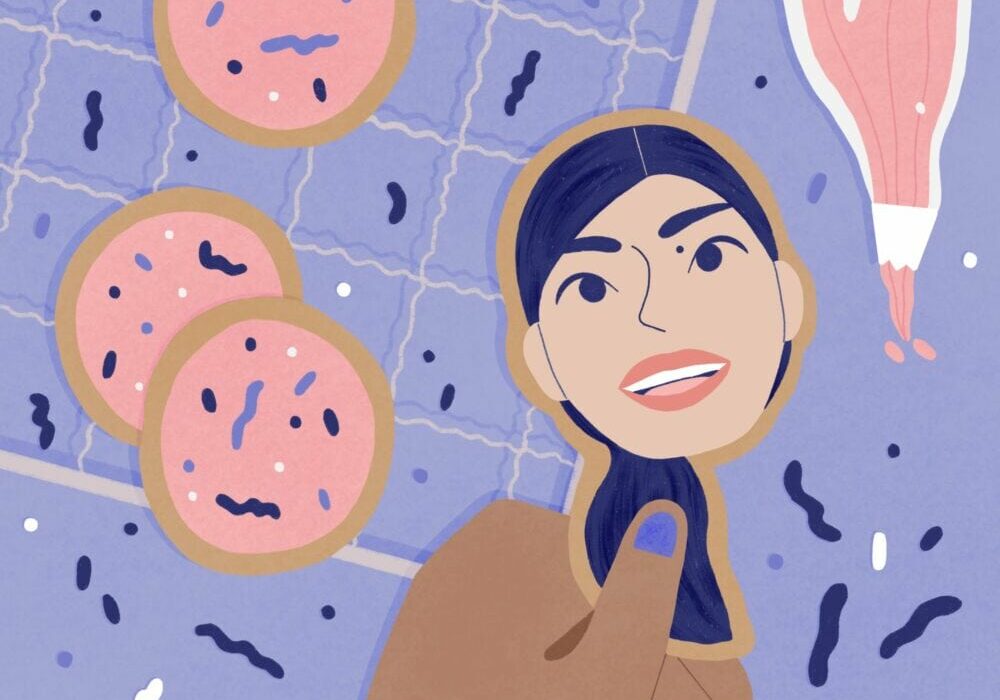
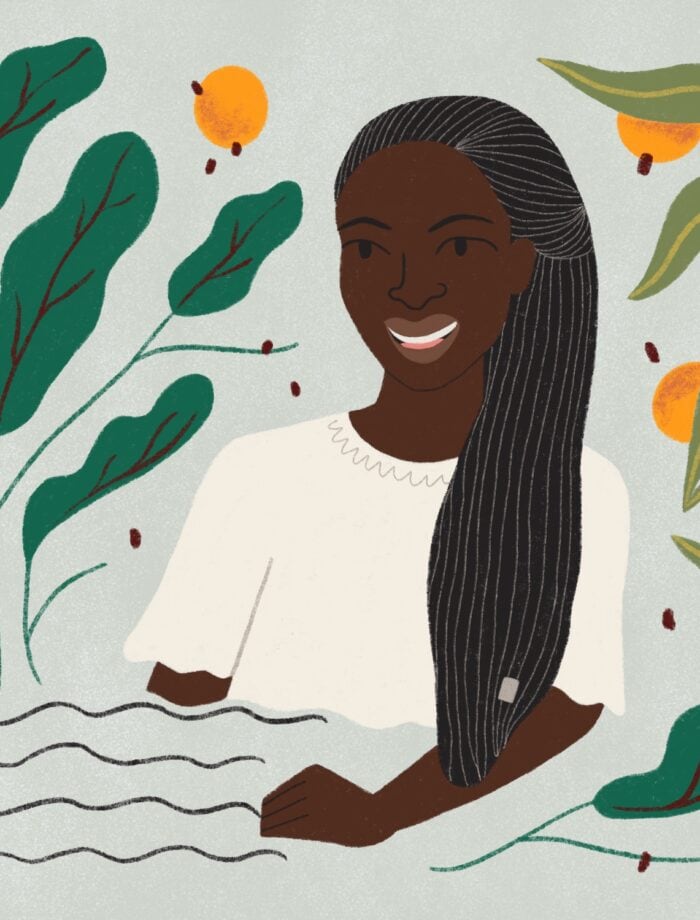
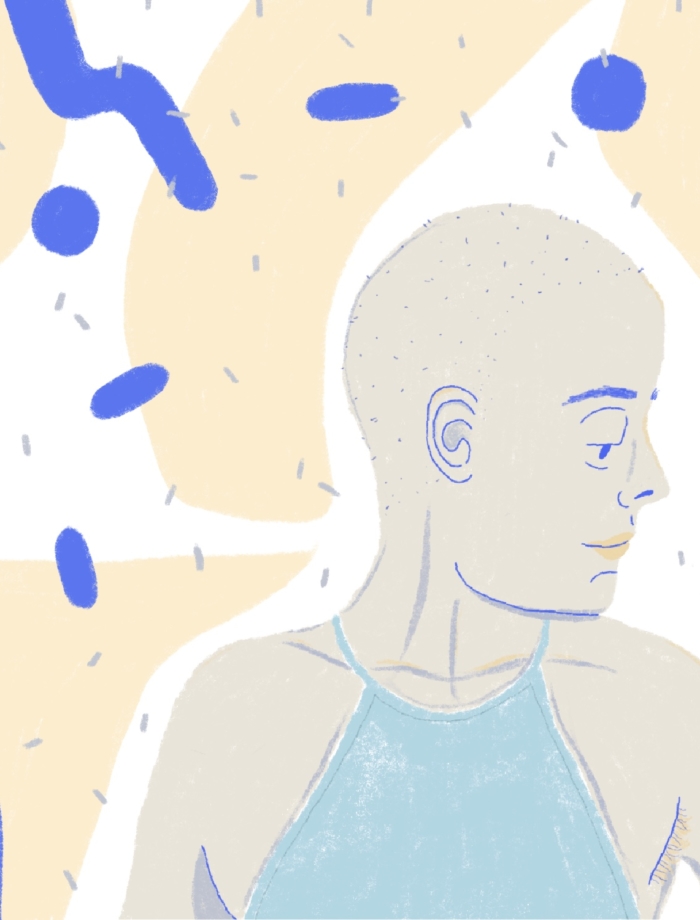
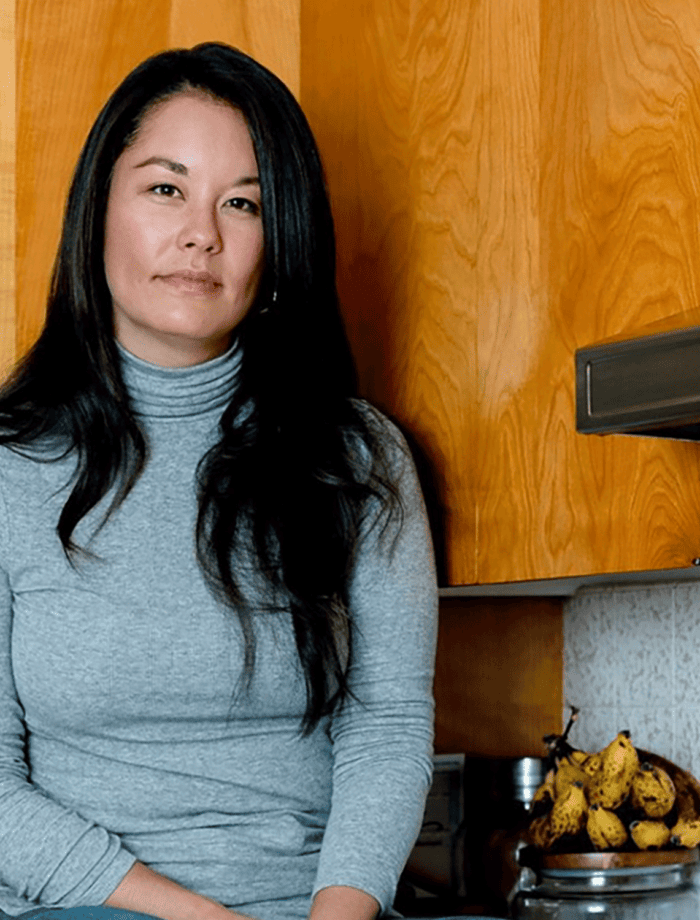
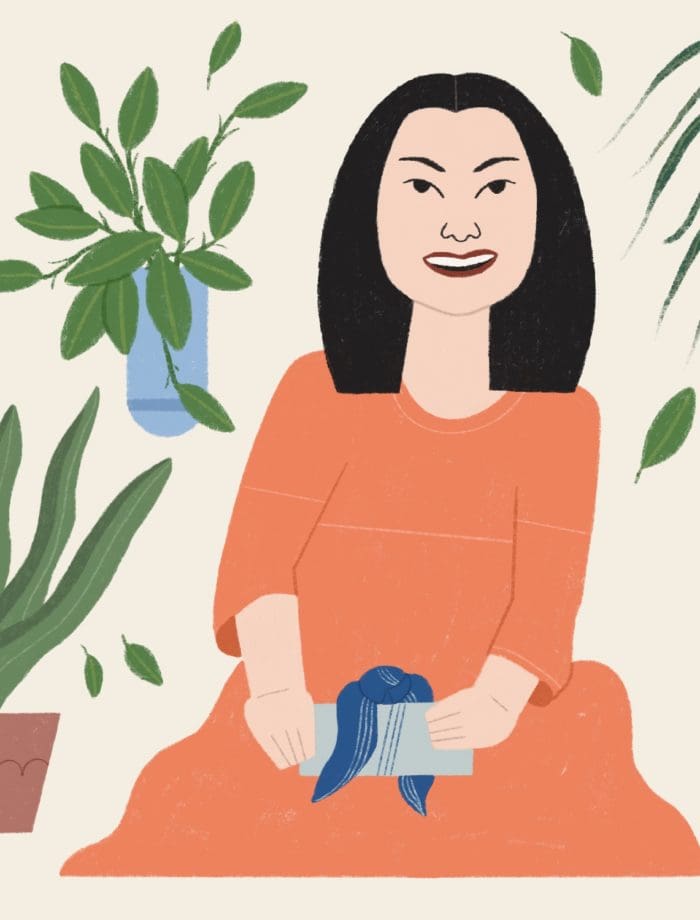
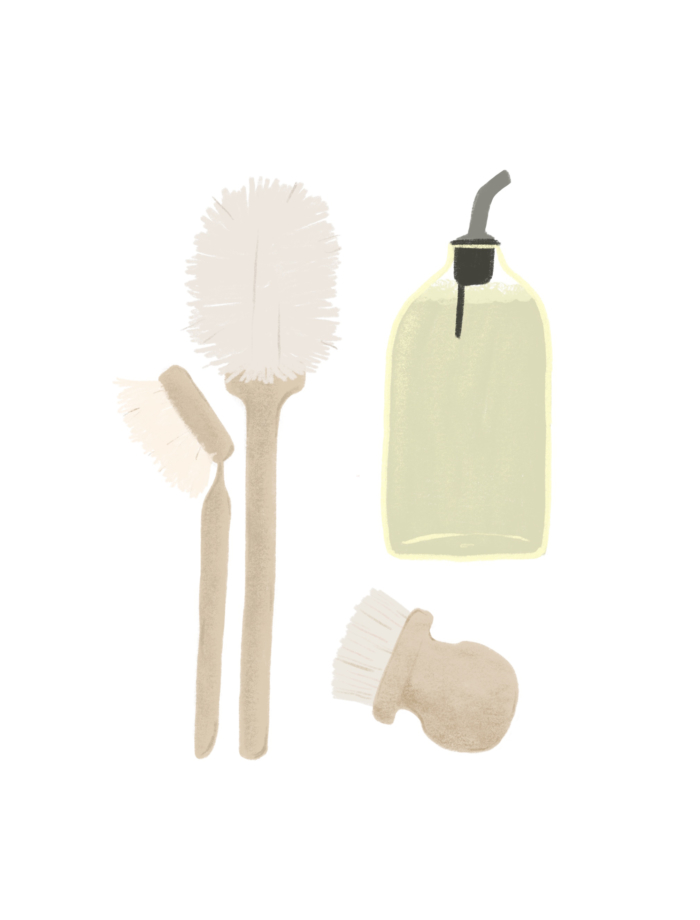
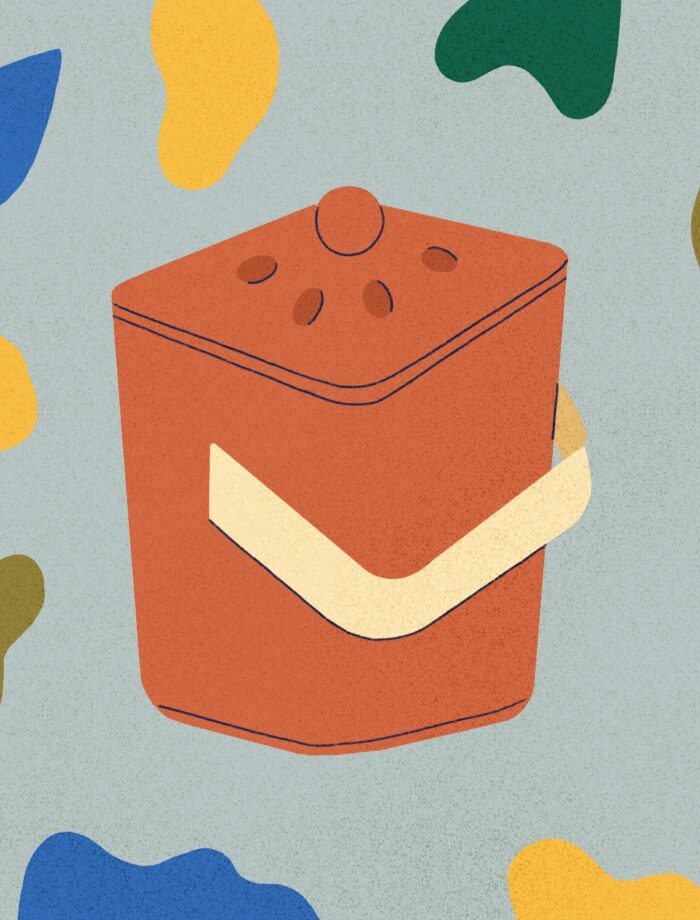
Loved every bit of this article! Thank you for posting!
Thank you so much! She’s pretty amazing!